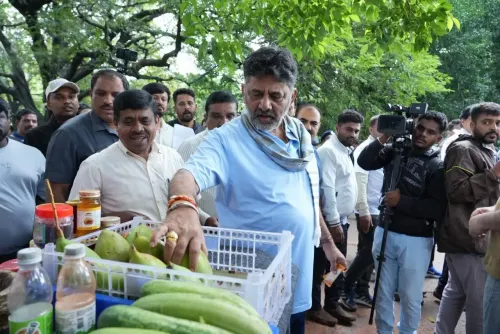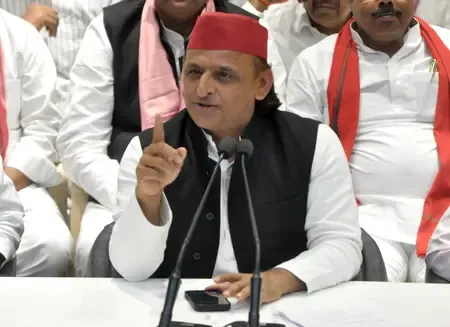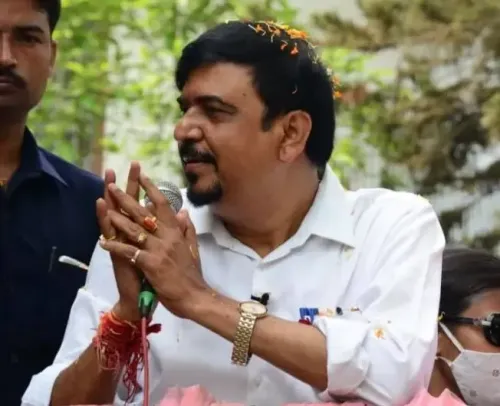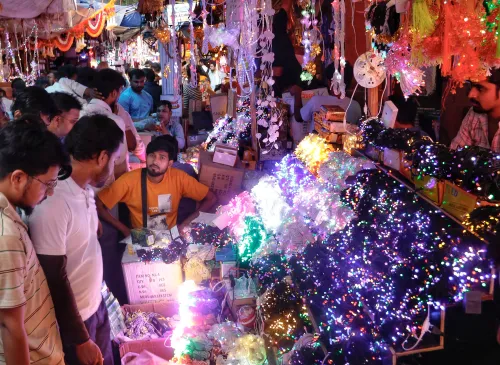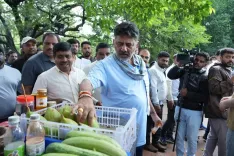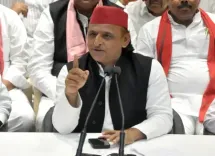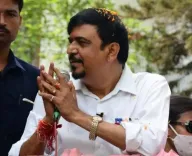Tamil Nadu's Battle for Rights: CM Stalin on Delimitation Controversy
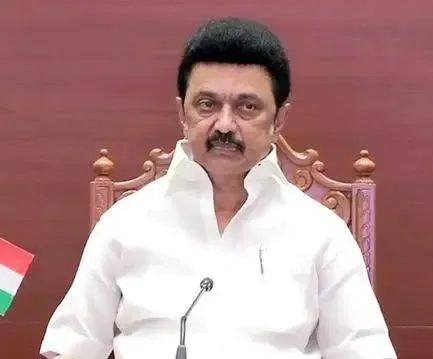
Synopsis
Key Takeaways
- Delimitation should not be based on the new census.
- Tamil Nadu risks losing eight parliamentary seats.
- CM Stalin demands the use of the 1971 census for the next 30 years.
- A Joint Action Committee of MPs from South India will be formed.
- Increased parliamentary seats are essential for fair representation.
Chennai, March 5 (NationPress) Tamil Nadu Chief Minister M.K. Stalin stated on Wednesday that the state is compelled to engage in a significant struggle for its rights, asserting that the forthcoming delimitation process must not be predicated on the new census.
During an all-party gathering held at the Secretariat to deliberate on the matter, CM Stalin cautioned that delimitation founded on population statistics would unfairly impact Tamil Nadu and other southern states.
“The sword of delimitation is looming over South India,” he emphasized, warning that if parliamentary constituencies are reorganized based on population, Tamil Nadu could potentially lose eight parliamentary seats.
“If the number of parliamentary seats in the nation rises, we should be allotted 22 additional seats. However, according to the current population-based formula, we will only acquire 10, resulting in a net loss of 12 seats. This represents a direct assault on Tamil Nadu’s political representation within Indian democracy,” CM Stalin declared.
He voiced his apprehension that Tamil Nadu’s voice is being suppressed and that the state’s capability to safeguard the interests of its citizens is being compromised. The Chief Minister clarified that the DMK is not against delimitation per se, but opposes its use as a punitive tool against states that have successfully implemented social and economic welfare initiatives over the past fifty years.
The all-party assembly concluded that the delimitation process should not be executed based on the 2026 census. Instead, CM Stalin urged the Centre to persist with the 1971 census as the reference for the next 30 years.
“We implore the Prime Minister to guarantee that delimitation will rely on the 1971 census even post-2026 and for the upcoming three decades,” he stated.
The meeting also called for an increase in the total number of parliamentary seats, along with the essential constitutional amendments to ensure equitable representation for all states.
CM Stalin announced that the Tamil Nadu government would bring this matter to the public to raise awareness.
He also revealed the establishment of a Joint Action Committee comprising MPs from South India to coordinate efforts and oppose any inequitable redistribution of parliamentary constituencies. This initiative follows Tamil Nadu’s ongoing resistance to the Centre’s attempts to impose a three-language policy within the state.
The CM contended that diminishing the number of parliamentary constituencies under the pretext of delimitation would further undermine Tamil Nadu’s representation in Parliament. Even if the total number of MPs in India increases, Tamil Nadu could still experience a decline in proportional representation, he observed.
“Tamil Nadu has excelled in development metrics and effective population control. It should not be penalized for its successes,” CM Stalin remarked.
Characterizing the delimitation process as a “Sword of Damocles” hanging over the southern states, he cautioned that states which have effectively managed population growth might face unjust consequences. “As an initial step, we are convening this meeting to unite all political parties and leaders in Tamil Nadu to combat this injustice,” he concluded.
In 1976, the Central government halted delimitation for 25 years through the 42nd Amendment Act to prevent states with higher population growth from gaining an unfair edge. This freeze was further extended in 2001 by the 84th Amendment Act, delaying delimitation until 2026. Currently, the 543 Lok Sabha seats and 250 Rajya Sabha seats are based on 1971 census figures, despite constituency boundaries and SC/ST reservations being adjusted in 2001.

